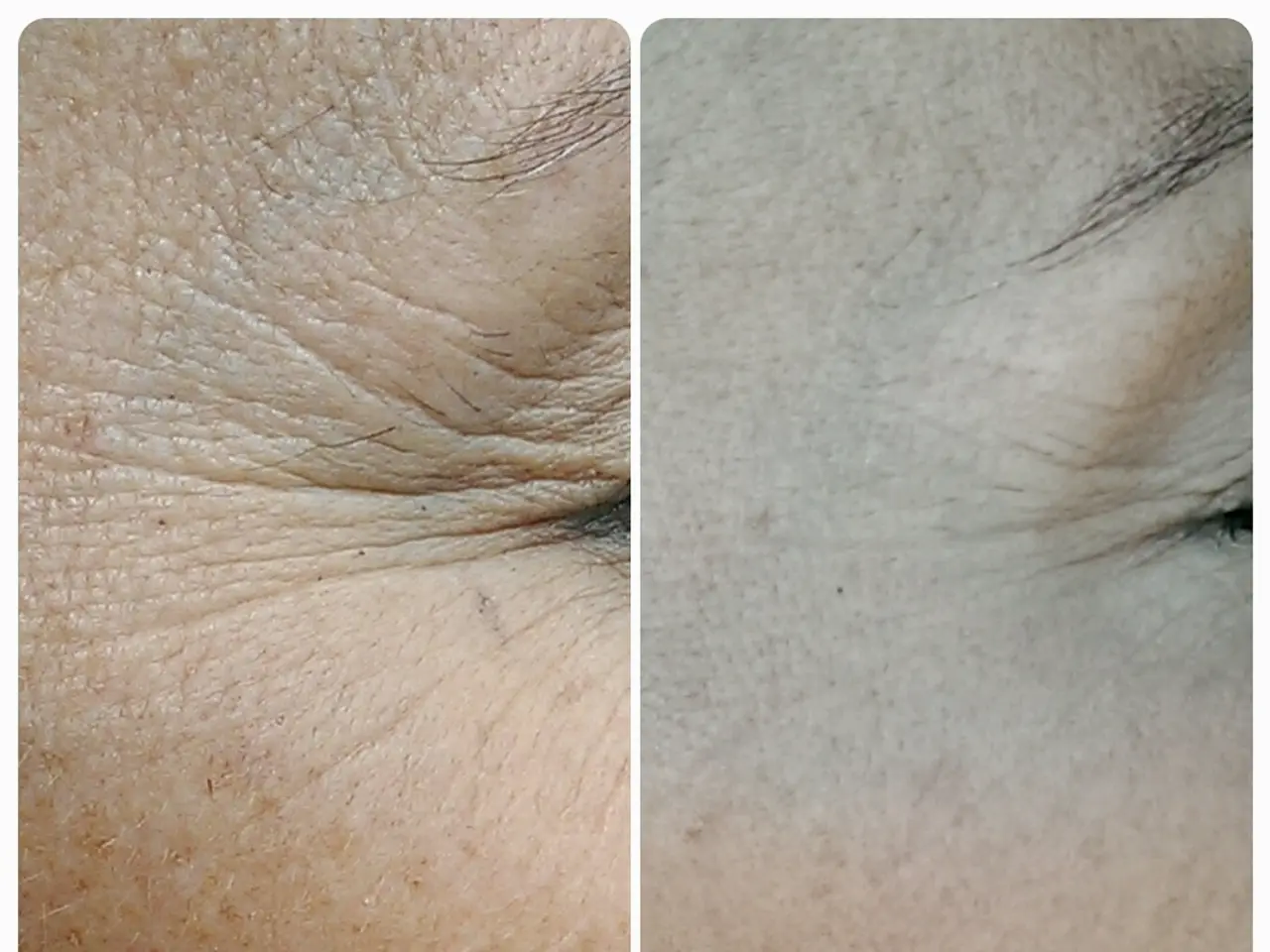Beneficial Effects of Hyaluronic Acid on Delicate Skin Conditions?
Hyaluronic acid (HA) has emerged as a popular skincare ingredient, celebrated for its exceptional hydrating properties. This naturally occurring substance, found in the skin and body, offers numerous benefits for sensitive skin, making it a highly recommended ingredient for long-term use in skincare routines.
Sensitive skin is a common condition that often leads to discomfort and frustration. Individuals with sensitive skin often experience discomfort, redness, and irritation more easily than those with normal skin. However, the challenges of managing sensitive skin can be eased with the right skincare choices.
Hyaluronic Acid: A Safe Bet for Sensitive Skin
Hyaluronic acid is well-known for being non-irritating, non-allergenic, and non-photosensitizing when used topically in skincare. Its function is to hydrate and maintain the skin barrier without provoking inflammation or irritation.
Several studies and reviews, including data compiled by the European Commission’s Scientific Committee for Consumer Safety, support HA’s safety profile even in special populations like pregnant or nursing women, noting no significant adverse skin reactions with topical or cosmetic use.
Addressing Allergies and Adverse Reactions
True allergic reactions to hyaluronic acid itself are very rare, since it is a naturally occurring polysaccharide in the body. However, some HA-based fillers or skincare products may contain other components that can trigger allergies or sensitivities in susceptible individuals. People with known severe allergies to product ingredients should avoid those formulations.
In rare cases, individuals with true allergies to hyaluronic acid or its formulation components may experience adverse reactions or "breakouts." Such cases require caution or avoidance.
Hydrating Sensitive Skin Safely
To maximize hydration, apply hyaluronic acid serum on damp skin. This powerful hydrator can deeply hydrate the skin without causing irritation, hold up to 1,000 times its weight in water, and strengthen the skin barrier.
Hyaluronic acid has soothing properties that help calm irritated skin and reduce redness. Its ability to retain moisture and enhance skin hydration makes it a valuable ingredient for sensitive skin.
Layering for Optimal Results
Hyaluronic acid can be layered with other skincare products, but it is important to avoid combining it with harsh ingredients. Its gentle and effective properties make it an ideal choice for those seeking to improve their skin's hydration levels without causing additional irritation.
In summary, scientific evidence strongly supports the safe use of hyaluronic acid in topical skincare and injectable fillers for most people, including those with sensitive skin, with very low risk of allergic reactions. People with known allergies to hyaluronic acid or associated product ingredients should avoid those products and consult healthcare professionals. There is no solid scientific evidence linking HA itself to causing breakouts. If sensitivity or reactions occur, they are more likely related to other ingredients or individual skin conditions rather than to the hyaluronic acid molecule per se.
- Hyaluronic acid (HA), a naturally occurring substance, is celebrated in skincare for its exceptional hydrating properties and benefits on sensitive skin.
- HA is known for being non-irritating, non-allergenic, and non-photosensitizing, making it a suitable choice for individuals with sensitive skin.
- Numerous studies and reviews support HA’s safety profile, even for special populations like pregnant or nursing women, with no significant adverse skin reactions reported.
- True allergic reactions to HA itself are rare, but some HA-based products may contain components that can trigger allergies or sensitivities.
- To maximize hydration, apply a hyaluronic acid serum on damp skin, as it can deeply hydrate, strengthen the skin barrier, and soothe irritated skin.
- Hyaluronic acid can be safely layered with other skincare products, making it an ideal choice for those looking to improve their skin’s hydration without causing additional irritation.
- Individuals with known allergies to hyaluronic acid or associated product ingredients should avoid those products and consult healthcare professionals to ensure their health and wellness, as well as the health of their skin.




